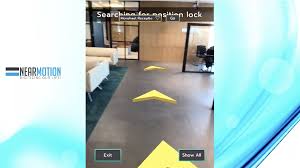Indoor Navigation For Universities Updated August 2021
I mean, if I could devour GPS signals inside my house my TomTom would work even as well as if it had been outdoors. Mmmm - even during a 3AM stupor I can find my bathroom in time to avoid a serious disaster - without the necessity for a satnav system Indoor Navigation For Universities..
So I set about checking out who would enjoy a GPS satellite signal while indoors; I soon acknowledged that the old maxim "the more you look, the more you see" isn't more relevant than during this context.
Aside from the light-hearted, somewhat flippant example of using TomTom (other satnav devices are available) to seek out the toilet , there's a more serious and compelling side to the story. Needless to mention , using satnav within the home doesn't qualify as a compelling reason to use a GPS repeater system. Read more
First - let's define a GPS Repeater System: A repeater may be a device that relays GPS signals to any indoor location that may not normally reachable. there's an outside antenna to select up the GPS satellite signals from your rooftop, and a coax that carries the signal inside the building to alittle , mains-powered, repeater unit. The repeater unit re-radiates the GPS signal inside the building, generally covering a radius of up to twenty metres.
Consider the subsequent applications and see if the other situations where indoor GPS signal would be useful (or even crucial) spring to mind.
• Fire & Rescue Stations: A repeater system installed during a firehouse ensures that satellite navigation equipment in rescue vehicles is "locked on" to the GPS satellite service in the least times while indoors. this suggests that once they exit the station "on a shout" the satnav devices do not have to attend maybe three or four minutes to accumulate the satellite signals - possibly qualifies as a "crucial" situation.





Comments
Post a Comment